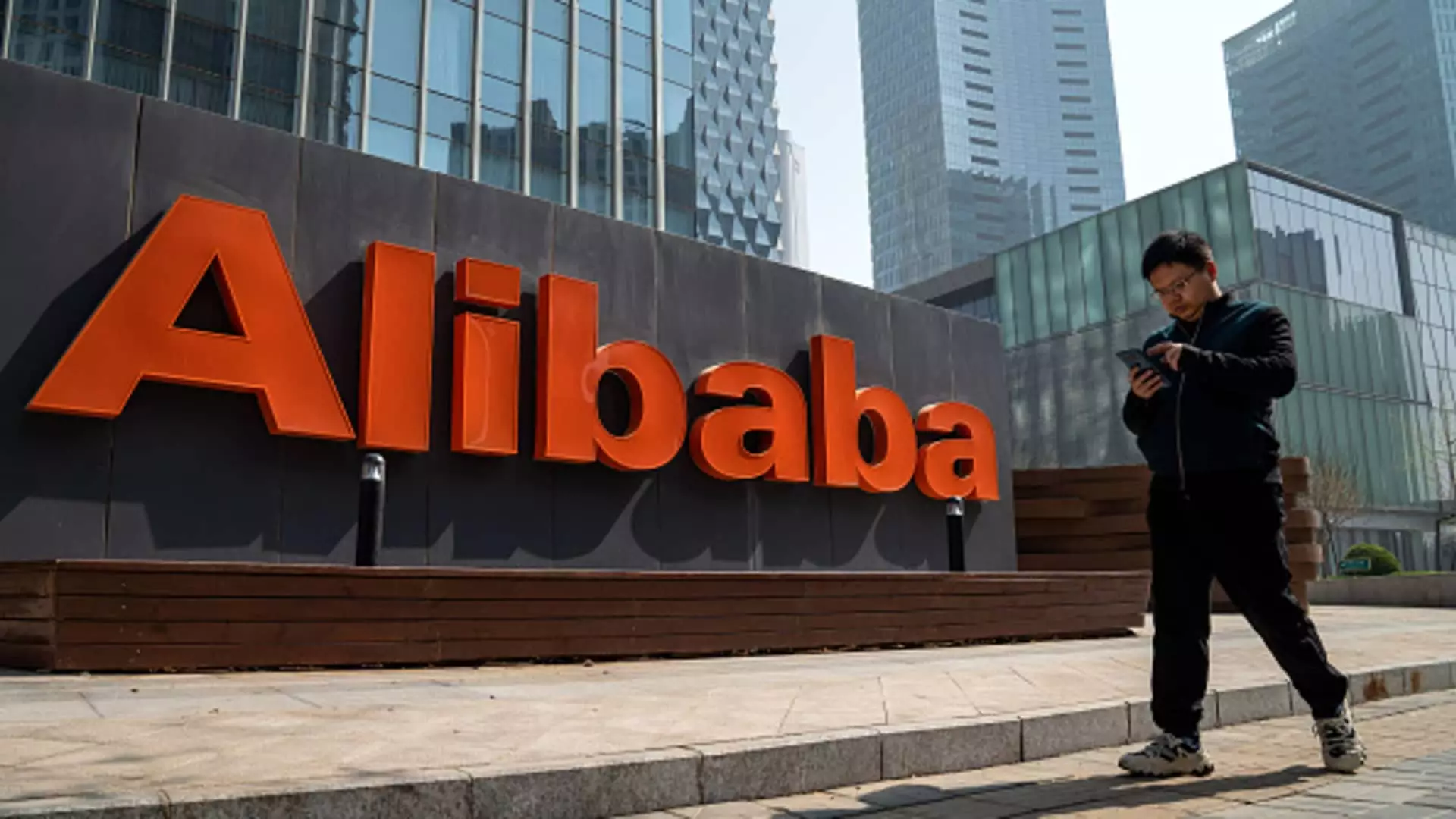Alibaba Group, the entrepreneurial titan of Chinese e-commerce, reported its quarterly earnings last Friday, showcasing a dual narrative of robust profit growth overshadowed by sluggish sales. With net income surged to 43.9 billion Chinese yuan ($6.07 billion) for the quarter ending September 30—a notable 58% rise year-on-year—many investors may have felt reassured. This increase is largely attributed to favorable changes in the value of their equity investments, highlighting a key distinction: profit margins can often operate in a different universe than sales volume.
Despite this impressive leap in profits, only 236.5 billion yuan in revenue was achieved, a modest 5% year-on-year increase that fell short of analyst expectations. Such a disparity opens Pandora’s box of questions about the health of Alibaba’s core businesses and the broader economic factors at play. Analysts had forecasted revenues hitting 238.9 billion yuan, putting the company in a precarious position as consumer spending remains tight in the second-largest economy globally.
Alibaba’s profit increase comes against a backdrop of economic uncertainty in China, characterized by a faltering retail environment. The decline in consumer spending is a critical concern that resonates beyond Alibaba and deeply impacts other Chinese ecommerce businesses, such as JD.com, which also reported disappointing revenue figures recently. The strains of a sluggish economy, coupled with high-profile regulatory crackdowns on major tech firms last year, raise questions about Alibaba’s long-term viability in this capricious landscape.
In response to this challenging climate, the Chinese government has announced a range of stimulus measures aimed at reviving economic growth, including a hefty 1.4 trillion yuan package. Still, whether these initiatives are sufficient to uplift consumer confidence remains speculative. Recent October sales data exhibited a better-than-expected year-on-year rise of 4.8%, but the question looms: Is this a mere blip in an otherwise protracted downturn?
Key performance indicators entwined within Alibaba’s report indicate that while the company’s revenue from its flagship platforms Taobao and Tmall saw a slight annual increase of just 1%, it’s indicative of the broader struggles within the Chinese retail sector. As consumer habits evolve, even leading brands must navigate the delicate balance between maintaining market share and adapting to changing shopper preferences.
One of the bright spots in Alibaba’s portfolio was its overseas ventures, notably Lazada and Aliexpress, which saw a remarkable 29% increase in year-on-year sales. This trend underscores Alibaba’s commitment to tapping into global markets and diversifying their revenue streams as domestic growth falters.
Moreover, Alibaba’s Cloud Intelligence Group reported a 7% rise in year-on-year sales, reflecting a strategic pivot towards cloud services and AI technology. Although this growth is welcomed, it comes at a time when global competition in the tech space is intensifying. The importance of this division is amplified by Alibaba’s attempts to claim a foothold in the burgeoning artificial intelligence sector—an area that could provide an appealing counterbalance to its core e-commerce struggles.
The comments from Alibaba’s CEO Eddie Wu highlight the company’s optimistic outlook on its core business units while reiterating its long-term investment strategy. The acceleration in their cloud business revenue and the promising growth from AI-related products are not only vital for Alibaba but represent a broader industry shift towards integrating advanced technologies into everyday commerce.
However, it is crucial to recognize that sustaining such growth will require adapting to regulatory policies and economic conditions while fostering innovation—a delicate and often unpredictable task. The launch of AI-driven products like Tongyi Qianwen and new cloud capabilities may provide Alibaba with the necessary edge to navigate this complex landscape, but execution will be key.
While Alibaba has demonstrated resilience through impressive profit margins, the disappointing revenue figures signal a need for introspection. The evolving market dynamics, coupled with imminent external pressures from the economic environment and competition, compel Alibaba to reassess its strategies. It remains to be seen whether the investment in technology and international markets will yield significant returns for the e-commerce giant in the years to come.

